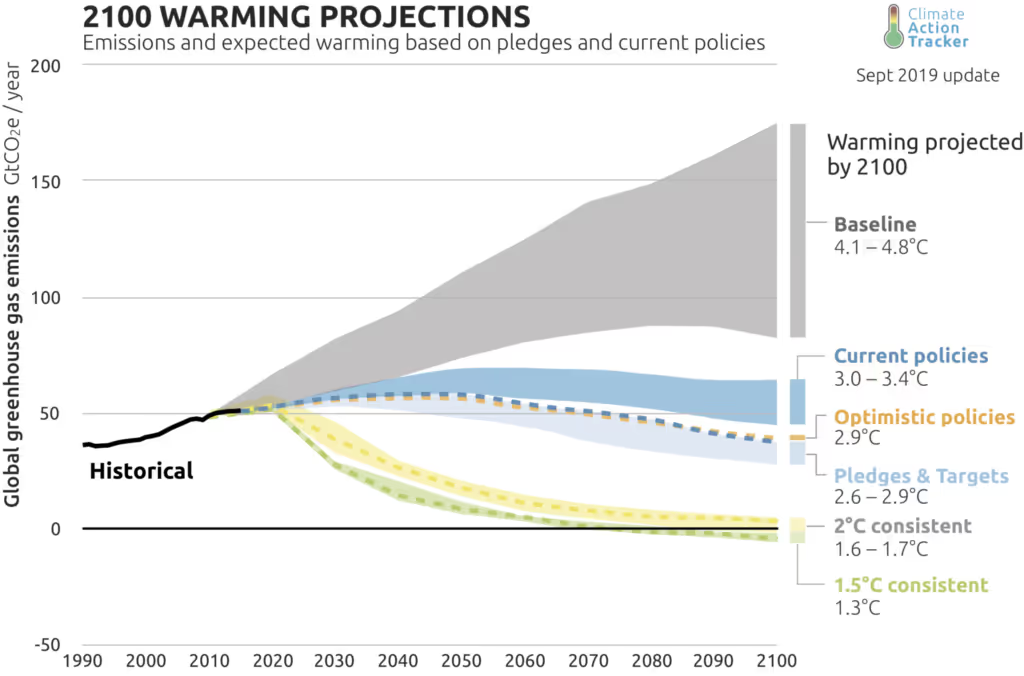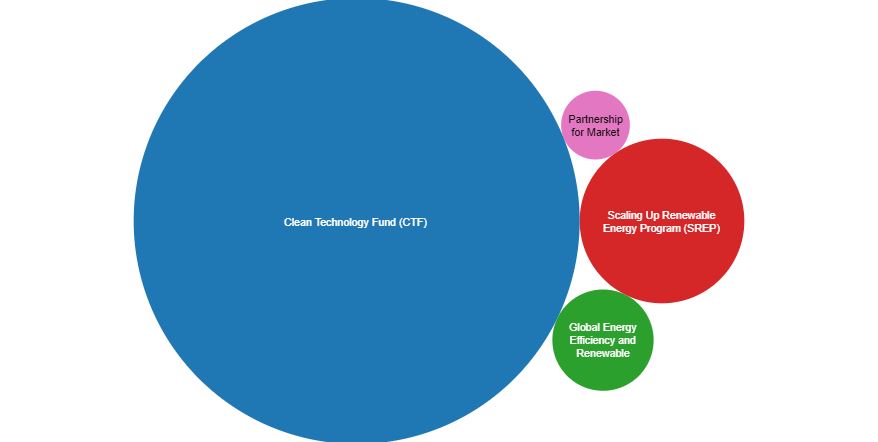In a 2018 report by the IPCC, it was stated that 12 years are left to turn the fight against climate change around. Other sources quoted the much more stringent deadline of 18 months. Some bleaker minds say it is already too late to fight the effects of climate change, and yet other analyses point out numerous thresholds and therefore cannot give a precise doomsday deadline.
So, how much time is left to save our planet really? Is there an actual tipping point to our planet? Whether you call it global warming, Anthropocene or climate crisis, humans are not programmed for long-term, slow crises. We just know how to think (and/or run) real fast when chased by an angry grizzly bear, but climate change is coming at humans from a deadly angle. The slow burn angle.
Is our planet desperate?
This planet as we know it is the product of a delicate equation between the mineral structure of Earth - for example, the atmosphere's composition - and its biosphere - trees absorbing CO2 and pumping O2 through photosynthesis. It is established that vegetation, from microplankton to majestous sequoia trees, was the dominant cause of changes to the atmosphere's chemical composition.
Mammals and other oxygen-breathing species (these guys...) came long after the groundwork had happened. By then, most land that was not frozen or desert was forested. The time was ripe for another species to try its hand at shaking the world to its foundation. First by cutting down most of its life support system, and by pumping back into the atmosphere the carbon that had been patiently trapped within organic matter and into the ground.
Humans have an advantage over trees though. We have taken notice of the transformation. And we are trying to do something about it. What is our timeline? We are uncertain because it depends on our own choices. Each day, our steering towards a more sustainable environment pushes the deadline back, and each molecule of CO2 we release into the air draws it closer. Here is why now is not a good time to give up. Especially not now.
Scenarios are a proof — the future of the planet is yet to be determined
The very existence of scenarios proves that our actions influence the extent of climate change. If we work hastily and put our political, economical and personal will to it, the objective to limit global warming to +2°C is within our reach. Inaction would cause a +6°C increase (with no reason to stop it from going up more). Intensive, climate action? We could go back to under 1°C and reestablish biodiversity. Our planet is incredibly resilient, and so are its inhabitants. Let’s prove this right.

Credit: Climate Action Tracker
These few degrees are the difference between survival and extinction. We have determined that anything bigger than that 2°C mark will trigger unknown feedback loops, most likely accelerating the phenomenon. With the implementation of climate action plans, we may yet wiggle out of this predicament. Climate adaptation services are necessary even in the best of scenarios, to fight off rising sea levels or extensive pollution, but mitigation efforts, as well as carbon removal projects, should be invested in to move towards a climate-neutral planet. There is still time to reverse the carbon and temperature trends.
We have saved the planet before
The carbon concentration in our atmosphere is only one of the ways we negatively affect our planet. In the early 1980s, it came to climate scientists’ attention that certain aerosol gasses contained in our sprays damaged permanently the now-famous ozone layer of our atmosphere. Following emergency meetings and the landmark Montreal Protocol, the components that destroyed the ozone layer have been almost entirely removed from circulation in less than 30 years. The proactivity of governments on this issue was key in forging this strategy.
On a continental scale, the EU countries focused on cutting carbon emissions by 22% from 1990 levels. The EU has set ambitious targets for the environment. They consider it as much a necessity as it is an opportunity to become more resilient, more independent, and better off than before.
We have proof of political successes. Plural. The European civil societies and governments have acknowledged the issue and have engaged on a slow but determined walk to implementing sustainable solutions: 20% of the entire EU budget is already dedicated to climate action and the newly appointed commission has made the implementation of a Green New Deal its political priority for this term.
Climate funds are flowing

Credit: Climate Funds Update
The tide is turning. In the steps of pioneers, the business models and ways to think about the products are changing. Large international groups and local businesses alike integrate corporate sustainability into their decision making. In 2015, IKEA was declaring a €1.16 billion investment to become a net producer of energy by 2020. In the meantime, one of our team members' hometown Chevreuse was launching a local currency to fund a real green economy in the region.
What are businesses doing for climate change?
Business attitudes have a direct impact on all aspects of climate change. Business sustainability strategies such as sourcing eco-friendly products, green working spaces that produce energy, or simply investing in the green economy: all contribute to making the planet a greener place, and they are happening. That is what Plan A works on: accompanying companies on their journey to put sustainable solutions into practice by providing a carbon footprint calculator, climate action plans and positive messaging to the fight. One thing is certain: we won’t win the fight against climate change without transforming profoundly the way we do business and how we allocate resources.
Saving the planet is... desirable and fun
A sustainable future is desirable. Bike riding is nice. Clean rivers in which to jump in during heatwaves are also a plus. The more we act towards this scenario, the more motivated people will be, rather than afraid of our increasing discomfort with our home planet. Plan A strives to make climate action and sustainable solutions fun and accessible.
Becoming sustainable is more like a virtuous circle than a rat race. The vision of a thrifty, austere, insect-eating future is not the best pitch to mobilise crowds and engage people on this journey. However, that of pollution-free cities, healthy humans and ecosystems and a thriving new economy are. That is the real political vision behind the transition to a sustainable future. Also, it is a realisable vision on a short enough timeline.
We have overstepped more than one planetary boundary already. The thing is that there is no real limit to the worst-case scenario. But we can reverse the processes responsible for the climate crisis as fast as we have developed them. Sure, this is the work of a generation, maybe even more. The effects of climate change will not wither away overnight. But we have the future in our hands, and that is all we need to know to push for this future. If we were too late, we would not be writing about it.
Saving the planet starts with you! Come and join the movement by requesting a free demo.







